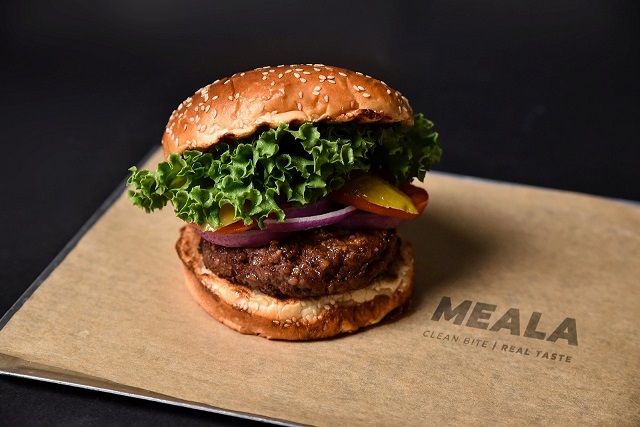Functionally Functional Proteins Clean up Meat Alternative Labels
- Sept. 29, 2022
- FMCG HORECA BUSINESS

Start-up Meala FoodTech Ltd. is a pioneer in cleaning up labels on meat substitutes made with vegetable protein. Meala’s proprietary platform produces functionally activated proteins intended to replace 1:1 methylcellulose and other hydrocolloids and gums commonly used in meat substitutes as binding and gelling agents. Meala’s multifunctional proteins significantly enhance the texture of meat substitutes, allowing them to more convincingly imitate the organoleptic properties of real meat.
While the plant-based category continues to gain traction, alternative protein food formulators continue to struggle to bring the clean label and mouthfeel of their products up to par with their traditional animal-based alternatives. Popular meat alternatives such as veggie burgers and sausages typically contain a lengthy list of ingredients, some of which have chemical names that consumers are unfamiliar with. This makes them “ultra-processed” products that risk being rejected. Methylcellulose is one of the most popular of these materials.
Methylcellulose (food additive E461) is a water-soluble polymer derived from natural cellulose that has been chemically modified. As a thickener, emulsifier, binder, stabilizer, and gelling agent, it is found in a variety of meat, dairy, and egg substitutes. It becomes more meat-like when exposed to heat, but returns to its viscous state when cooled. Since plant-based proteins have a low water retention capacity and cannot bind, hydrocolloids such as methylcellulose are indispensable.
Having a spotless labeling
The majority of meat substitutes on the market include vegetable protein (often soy) coupled with water, methylcellulose, extra stabilizers, tastes, colors, and fat, and fail to fulfill the clean-label criteria demanded by modern consumers. In addition, they still fall short of the ideal meat-like texture.
Hadar Razmovich, CEO and co-founder of Meala, states, “A true beef burger will consist of meat, fat, some carbs, spices, salt, and pepper,” when the components list is broken down. “Our objective is for plant-based alternatives to have a comparable short list of basic, familiar ‘home kitchen’ components with the same robust taste and texture as genuine meat.”
Alt-Meat Makeover
MEALA’s solution is manufactured utilizing naturally existing biocatalysts, allowing it to serve as a superior methylcellulose substitute. Its platform is compatible with a wide variety of plant proteins, generating a stable hydrogel from them when heated without altering their behavior when cooled. Meala’s platform may be simply incorporated onto current production lines for consumer packaged goods.
“In laboratory tests, our food proved greater water retention and gelation qualities,” argues Liran Gruda, chief information officer and chef at Meala. “When incorporated into meat analogs, it imparts a fattier character, resulting in a juicier and more succulent bite. Meala is a comprehensive solution that can replace not just methylcellulose but also a whole system of standard stabilizers. It considerably enhances the texture of meat substitutes with no aftertaste and a ‘finished’ label.”
First target: alternative meat
Meala’s goods will be labeled simply as a protein, such as pea or soy, and account up around 4% of the final product. The business discloses that their protein has already passed proof-of-concept studies in plant-based burgers, kebabs, dumplings, and other meat substitutes produced for alternative meat producers and restaurants. Before expanding into alternative dairy, fish, and egg goods, Meala will concentrate on this market. Amir Zaidman, the Chief Business Officer of The Kitchen FoodTech Hub, acknowledges that some of the biggest plant-based meat firms have launched a genuine revolution with products that more closely resemble “meaty” textures and tastes. “Unfortunately, it is difficult to substitute ingredients in foods that customers do not want. We are ecstatic about Meala’s innovative B2B platform and the opportunities it opens up for plant-based enterprises. We feel that this might be a major step toward making plant-based diets the norm.”



